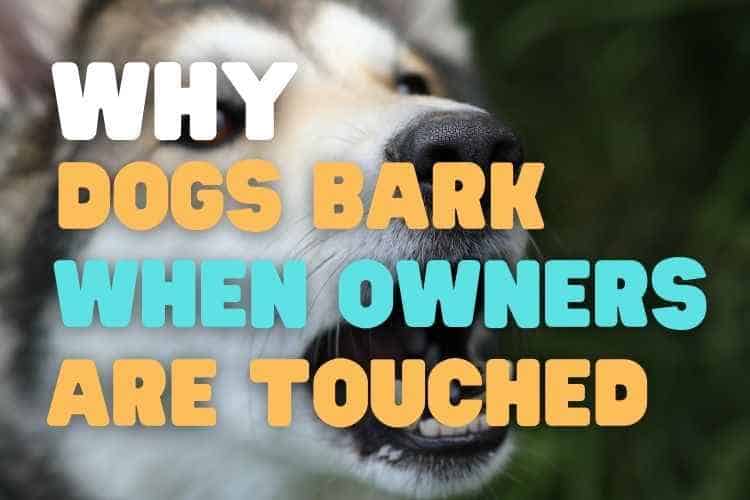Are Dogs Happier In Pairs? (Solved)
So you already have one dog. But what about two? There are lots of reasons to think about getting another dog.
Many dog owners come to the point of deciding whether it’s worth getting a second dog.
Are dogs happier in pairs?
Yes, most dogs are happier in pairs. Dogs are social “pack animals” that need the presence of people and/or other dogs. The breed and temperament of the two dogs need to be considered as some won’t get along well together.
For example, you might be reading this thinking about a companion for your Rottweiler. Another might be reading this from the perspective of a chihuahua owner. Both dogs are completely different in size and temperament and would have different needs in a companion.
That’s not to say it couldn’t work, but the dog’s personality will be a big factor. If the dog is a lap dog and loves to be with its owner. They may get jealous if another dog is brought into the mix.
In the case of a Rottweiler and a Chihuahua, the size difference alone would be enough to intimidate the Chihuahua.
This is just something to consider…
Like people, dogs come in various shapes, sizes, and personalities, and what might be right for one dog might be a huge stressor for another that decreases their quality of life.
What is your dog’s temperament?
Before you can even begin thinking about a companion, you need to think about your dog. For any kind of partnership to work, the dogs need to be a good match for each other.
Ask yourself, what is your dog’s personality like and what is the temperament of the breed of the second dog?
You should consider what your dog needs in a companion, not just what kind of dog you want to get.
Maybe your dog is calm and quiet. A high-energy, high-interaction puppy might not be the best for them. Or maybe your dog is already high energy, and the ideal partner would be a dog that likes to play but also calms them down a bit.
The difficult part is that none of this is an exact science. Dogs are just as individual and unique as people. Two dogs that you would think would get along well together might cause each other stress and anxiety.
Or they could be great partners. While there’s no way to know for certain, the best hope of success is understanding your pup and considering their needs before you choose their partner.
The Other Dog:
While you’re intimately familiar with your pup, the real wildcard, the unknown variable, is the dog you hope to bring into the family. You just can’t know some things until you’ve spent enough time with them, but some factors can help you predict how they might behave.
Questions To Ask Yourself:
- What is the breed standard as far as temperament is concerned? Breeds can vary significantly when it comes to temperament and personality. Some breeds are more interdependent and they love being around other dogs and people. Other dogs, like the Chow Chow, can be a bit more independent. That’s not to say they wouldn’t do well in a pair, but if they were paired with high energy overly social dog–it might not work.
- Is there is a big energy difference? If you get a high energy dog, like a husky, that needs hours of exercise each day, while your current dog is a big lazy couch potatoe. They might not be on the same page. One will require more energy to maintain then the other. If your other dog is a Yorkie, you wouldn’t be able to take them both on a 1-2 hour walk. The poor Yorkie would tired out.
- Is there a big size difference? Will, the smaller dog be allowed on your lap and furniture while the bigger dog has to stay on the floor? That could work but it could also create tension and jelously. Small dogs can have what’s called “Small dog syndrome.” It causes them to act aggressively toward bigger dogs because their size intimidates them. It’s a fear based response.
- What are your personal preferences? Your personal preferences are just as important as the needs of your current dog. Make sure the breed and dog you choose is one that you will be able to adopt, love, and be commited to for the dogs entire lifetime.
- What are the parents like? If you’re picking a puppy and you have access to the mother and father, try spending some time with them to see how they behave. This could be a good indicator of what you can expect in the puppy.
- Did you get the dog from a shelter? While getting a rescue dog is a great way to help a dog in need, shelter dogs come from various backgrounds that can impact their behavior. Maybe they were a stray and aren’t used to people. Maybe they were abused and are actively fearful/aggressive towards certain people.
- None of these are reasons not to get a dog, as long as you’re willing to put in the time and effort to train them and help them get comfortable. But they are important things to consider.

Pros & Cons
Pros:
- Companion for your dog will always be available
- Can leave the dogs alone for the day without feeling bad
- You will have another family member in your life
Cons:
- Dogs might not get along, and you will have to make sure they’re on the same page
- The older dog could be jealous of the new dog
- It Will be more difficult to travel
There are many situations in which a second dog could be a tremendous benefit. Some cons could make getting a second dog to be something that you regret.
Each dog is unique. Here are some pros and cons of having two dogs that you should consider:
The Pros of Having Two Dogs
- Your dog has a companion to play and socialize with. A second dog can help them let out extra energy and keep them occupied when you’re busy.
- You don’t have to feel bad if you leave them alone for a day while you’re at work. You know they have a friend to keep them company and keep them occupied. This can help ease separation anxiety for dogs who show signs of anxiety and distress when left alone for long periods.
- You will have another family member in your life. Dogs are like our children. If you have an open space in your heart that needs to be filled, a second dog might be what you’re looking for!
The Cons of Having Two Dogs
- The dogs might not get along, causing more stress and anxiety instead of alleviating it. Maybe the dogs are a bad match. Just like with people, sometimes no relationship is better than a bad relationship. Be sure the dogs are a good match before you commit to bringing one into your home.
- Your dog might learn new bad behavior from the new dog. Guarding toys, food aggression, and excessive barking are all examples of the kind of behavior you might encounter in a new dog.
- Even if the new dog doesn’t bring any bad behavior with them, they might amplify any behavior issues in your dog, making them more difficult to manage. If it’s difficult managing one dog who pulls on a leash, how about two?
- It would be more difficult to find someone to watch dogs for trips/vacations. I don’t think this one needs much of an explanation. Two dogs = twice as expensive or twice as much work for a sitter.
Tips On Choosing a Second Dog
- Let your dog help you pick their companion. Take your dog to the shelter and let them spend time with the other dogs. Pay attention to how they play and interact with each other. If they meet your standards, and your pup seems to like them, you have a much higher chance of success.
- Be sure both dogs are on the same page training-wise. This will take time and effort, but if they both know how to follow the same commands and what is expected of them, you can expect fewer issues with problem behaviors.

So, are dogs happier in pairs?
Now we know the answer is usually YES! If the dogs get along well, a second pup could increase your pup’s quality of life, keeping them company and giving them a play partner when you’re away. This could help reduce anxiety and keep your dog happy.
HOWEVER, a bad fit could stress out your dog or teach them bad behaviors. Which is more stressful for you, in addition to the extra logistics of caring for two animals instead of one.
Conclusion: Give it a go! Go looking for a companion if you can take on another pet. But be sure you take some important factors, like the ones listed above, into consideration before making your final decision.
Do you have two dogs? If so, let us know your experience in the comments!






